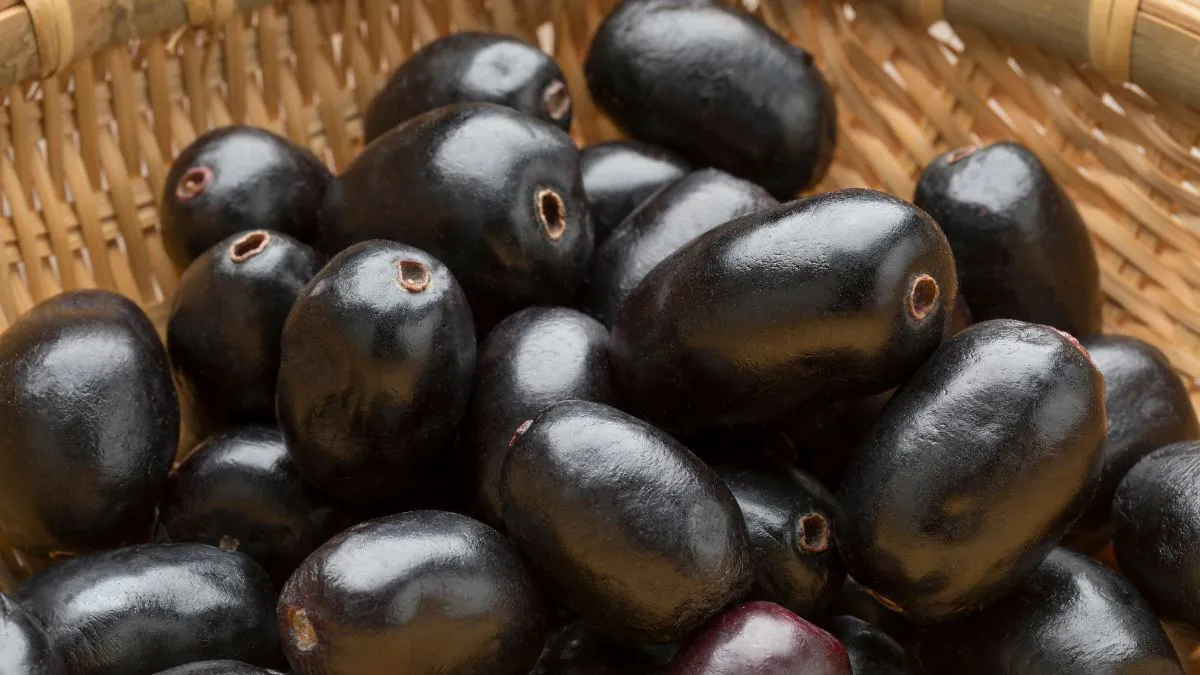- By Iram Hussain
- Thu, 05 Jun 2025 06:34 PM (IST)
- Source:JND
Jamun is a fruit claimed to help manage diabetes and control blood sugar levels. Packed with antioxidants, fibre and jamboline, a compound that slows down sugar release, jamun helps regulate insulin levels and improve glucose metabolism. This Indian blackberry or Syzygium cumini has been prized in traditional Indian medicine for its possible utility in controlling blood sugar levels. Due to the growing incidence of diabetes in India, natural remedies such as jamun are being sought for their adjunctive role with standard treatment.
In a conversation with Jagran English, Prachi Jain, Chief Clinical Nutritionist, CK Birla Hospital, Gurugram explained how jamun can help in controllling blood sugar levels.
Can Jamun Help Manage Blood Sugar Levels?
Jamun is also found to contain bioactive agents like jamboline and ellagic acid which can influence the way the body metabolises sugar. Jamboline is thought to retard the breakdown of starch into sugar, so blood glucose does not shoot up suddenly. The low glycaemic index of the fruit also renders it suitable for diabetes patients since it does not lead to a rapid rise in blood sugar when eaten.
Apart from the pulp, jamun seeds are dried and powdered for medicinal purposes. Jamun seed extract has been found in research to enhance insulin sensitivity as well as decrease fasting blood glucose levels. The antioxidants in jamun further lower oxidative stress, a usual complication in long-term diabetes.
But even as the plus points of jamun look encouraging, it must be kept in mind that it is not a substitute for medication prescribed or a well-balanced diet. Diabetes patients should consult their doctor before adding jamun or its supplements to their lifestyle, considering the fact that results may differ from person to person.
ALSO READ: Phalsa vs Jamun: Which Indian Berry Is The Best Choice To Consume In Summer Season?
In summary, jamun can be a useful dietary addition to those controlling blood sugar levels due to its natural constituents and low sugar content. Used judiciously, in conjunction with medical guidance and lifestyle modifications, it could provide a convenient, seasonal means of aiding better glucose regulation.

